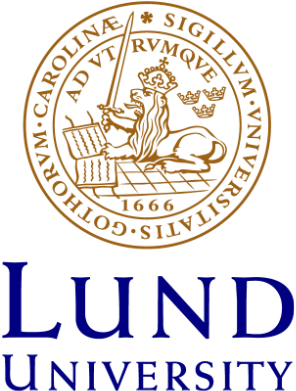Programme
10:15-11:30 Olle Blomberg – Beyond internalism and externalism about blameworthiness
11:35-12:50 Gerald Lang – Defensive luck
12:50-14:00 Lunch
14:00-15:15 Agnieszka Kochanowicz - Towards a social account of moral luck
15:15-15:30 Coffee break
15:30-16:45 Lilian O’Brien – The problem of lucky action
16:45-17:00 Coffee break
17:00-18:15 Gunner Björnsson – Outcome luck and the nature of praise and blame
19:00 Dinner
Registration
If you are interested in attending the workshop, please email olle.blombergguse before Friday November 17 (if you want to attend the lunch and/or dinner, please include any dietary requirements in your email).
Abstracts
Olle Blomberg (University of Gothenburg) – Beyond internalism and externalism about blameworthiness
Rejection of resultant moral luck is often motivated by internalism about blameworthiness: An agent’s degree of blameworthiness for an action or outcome is exclusively grounded in the agent’s psychology when exercising direct control over something that led to the action or outcome. External factors are irrelevant since blameworthiness judgements evaluate agents rather than actions or outcomes. Externalists instead argue that this view of blameworthiness judgements is compatible with external factors directly or indirectly influencing degree of (at least one kind of) blameworthiness. I argue that this view of blameworthiness judgements as well as the choice between internalism and externalism should be rejected. Blameworthiness judgements about outcomes and non-basic actions—which involve resultant moral luck—are complex relational judgements concerning an agent’s diachronic blameworthiness for earlier basic actions in light of later results.
Gerald Lang (University of Leeds) – Defensive luck
Daniel Statman thinks that certain positions in the ethics of defence require a commitment to moral luck. For example, if we hold that so-called ‘innocent threats’ are defensively liable, then we are committed to thinking that individuals’ moral status can change due to factors beyond their control, which commits us in turn to believing in moral luck. I will argue that the connections between moral luck and defence are not what Statman says they are, and that we can learn something about both moral luck and defence through reflection on why this is so.
Agnieszka Kochanowicz (University for Continuing Education Krems) - Towards a social account of moral luck
The luck involved in cases of moral luck is usually understood as a moral agent’s lack of control over factors that have a bearing on their moral standing. This conceptual commitment is rarely discussed and often taken for granted. In my paper I will discuss two reasons that might be put forward to justify it: 1. Conceptual equivalence (i. e. the assumption that lack of control can be substituted for luck without change of meaning), and 2. Contextual relevance (i. e. the contention that whatever luck refers to, besides lack of control, is of no moral significance). Rejecting them both will lay the ground for an expanded understanding of luck, which, when applied to cases of moral luck, will suggest an account that lays particular emphasis on their social dimension.
Lilian O’Brien (University of Helsinki) – The problem of lucky action
It is widely accepted that intentional action is intimately bound up with exercising control over one’s action. In fact, prominent causal theories of action devote a lot of energy to characterizing what it is to exercise sufficient control for an agent to act intentionally. But it is noteworthy that one can be very lucky and yet successful in performing some intentional actions. As being lucky undermines the exercise of control, this puts considerable pressure on the idea that intentional action and exercising control are as intimately intertwined as they are widely thought to be. I suggest a way to solve the problem of lucky intentional action. This requires relativizing the kind and degree of control that is required for intentional action to the act-type that the agent is attempting to token in her intentional action. This solves the problem of lucky action, I claim, but it does so at the cost of calling the reductive ambitions of causal theories of action into question.
Gunnar Björnsson (Stockholm University) - Outcome luck and the nature of blame and praise
A central disagreement in the theory of responsibility concerns outcome luck. If someone unjustifiably risks harming, can their blameworthiness be affected by whether anyone is actually harmed? If someone does their best to help an important cause, can their praiseworthiness be affected by whether they succeed? Some think so, but many have the strong intuition that the answer is negative: The agent would be equally blame- or praiseworthy whether or not the outcome materializes. I have previously argued against the reliability of such intuitions. In this talk, however, I suggest that attention to the nature of blame should lead us to revise the questions themselves.
